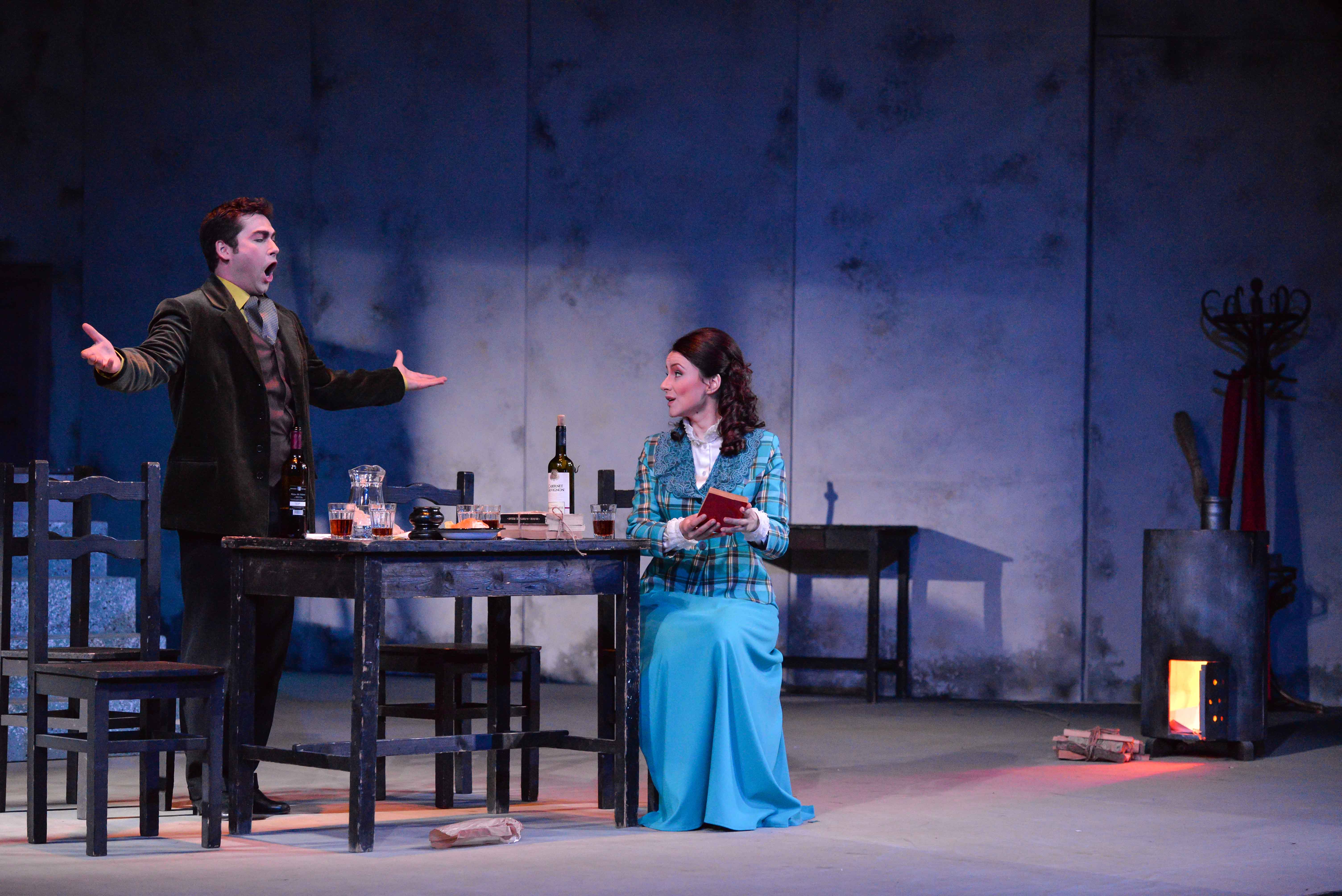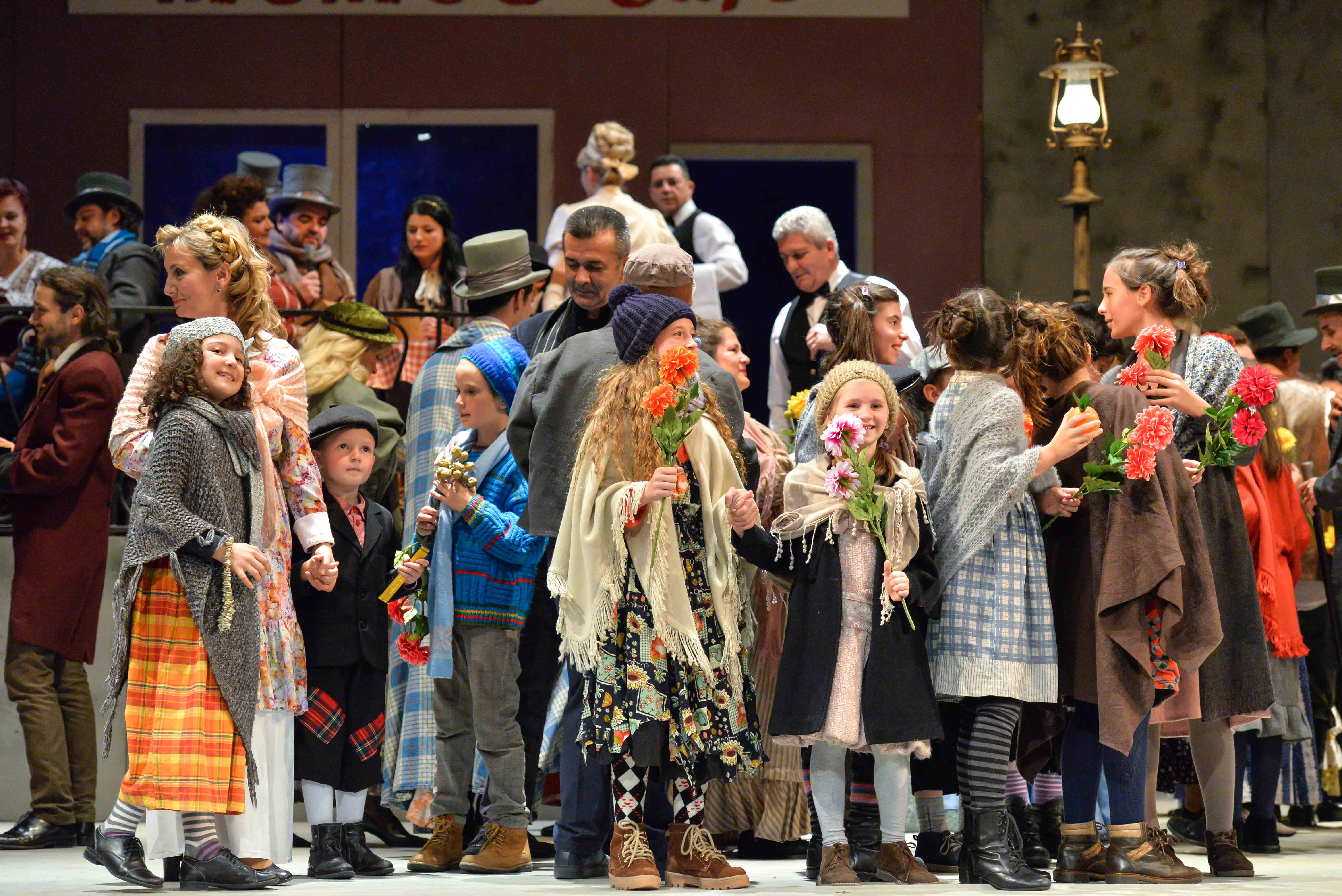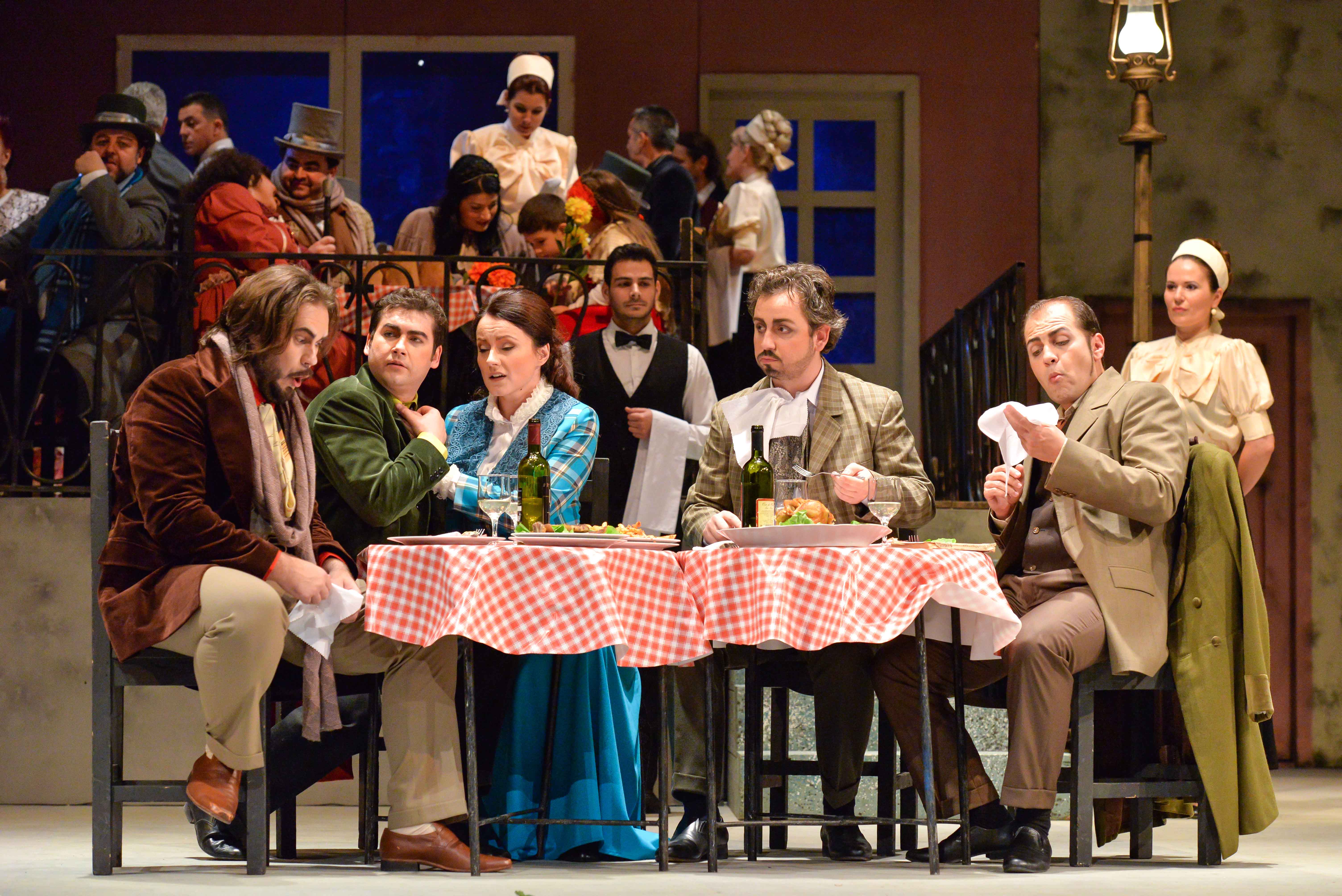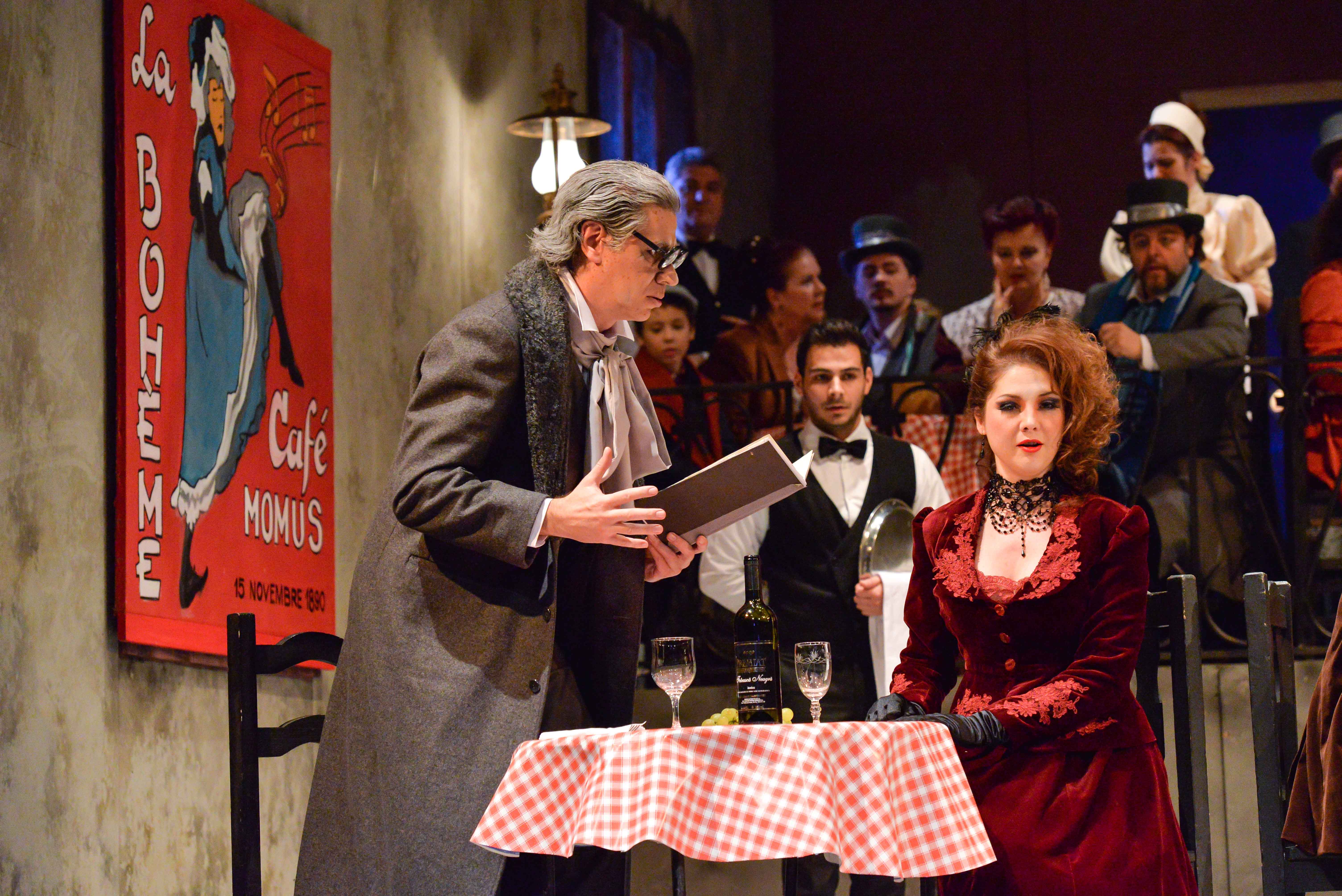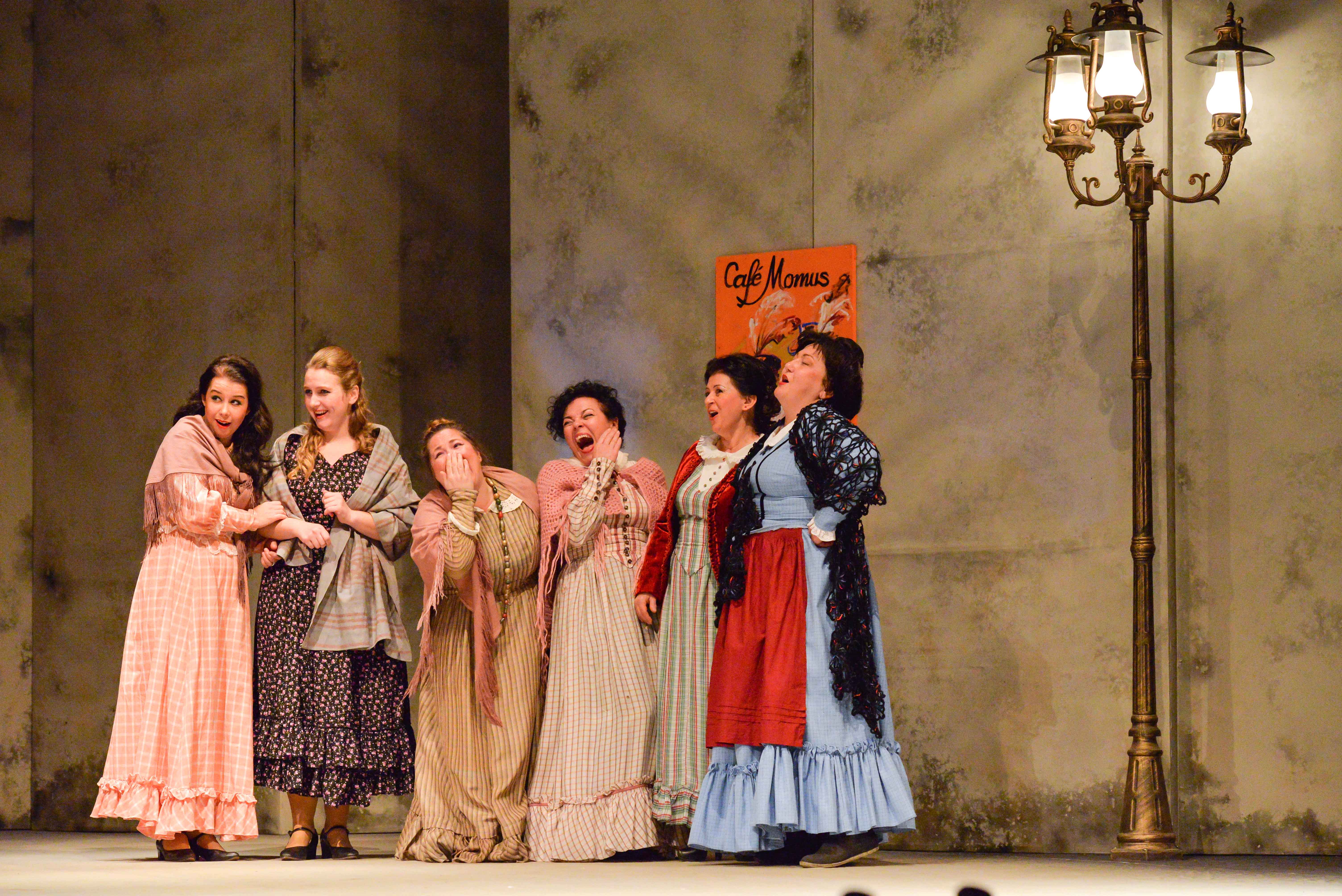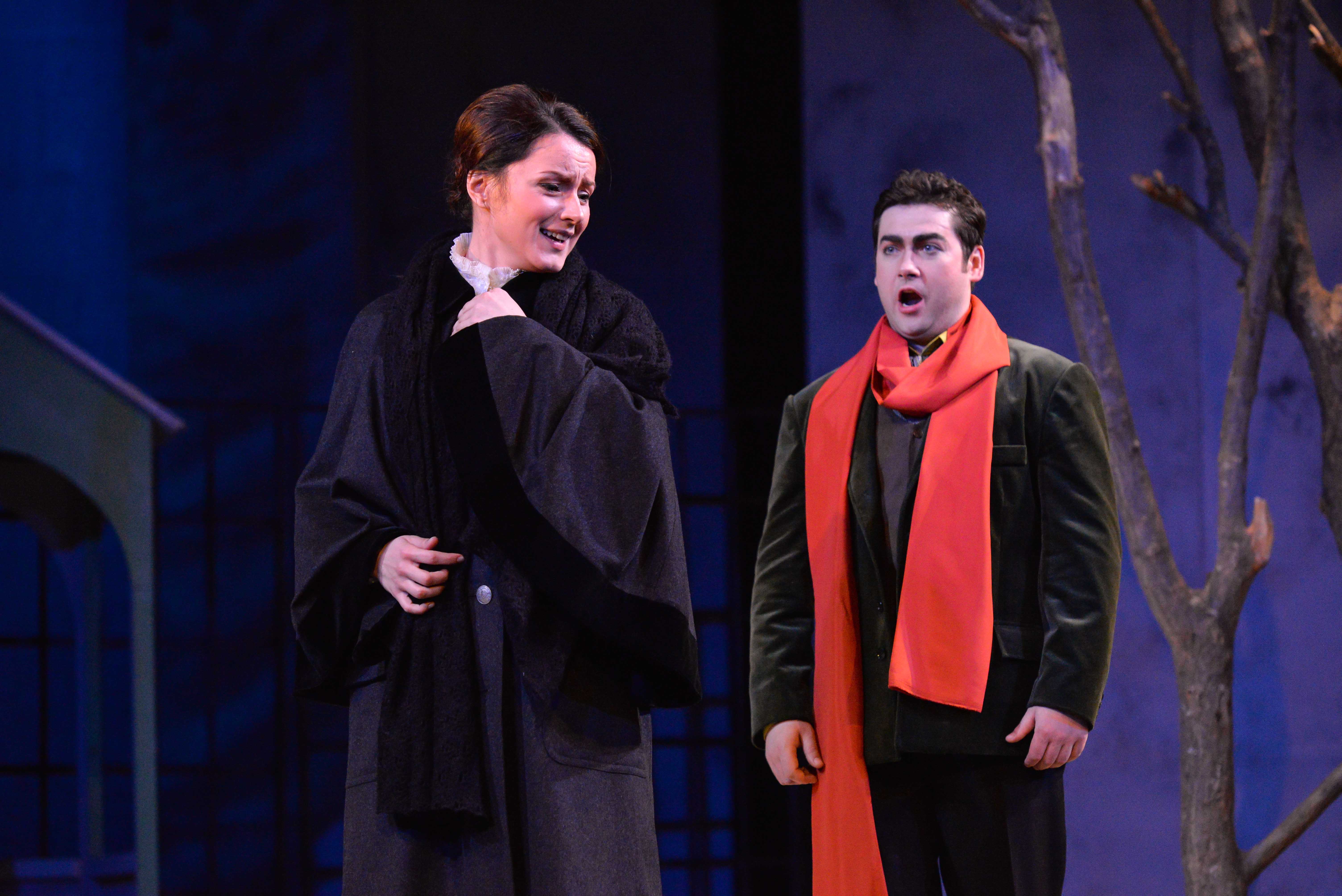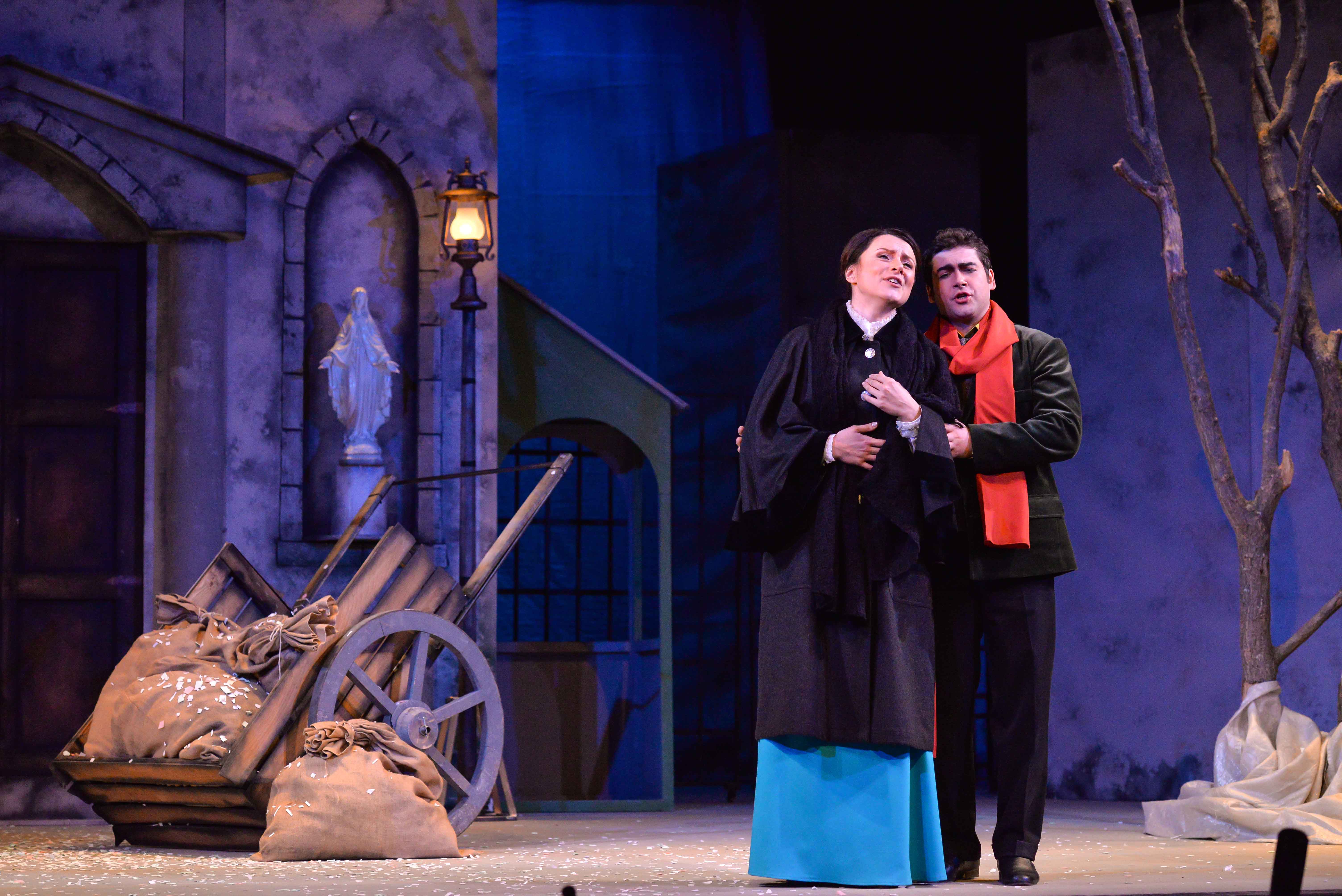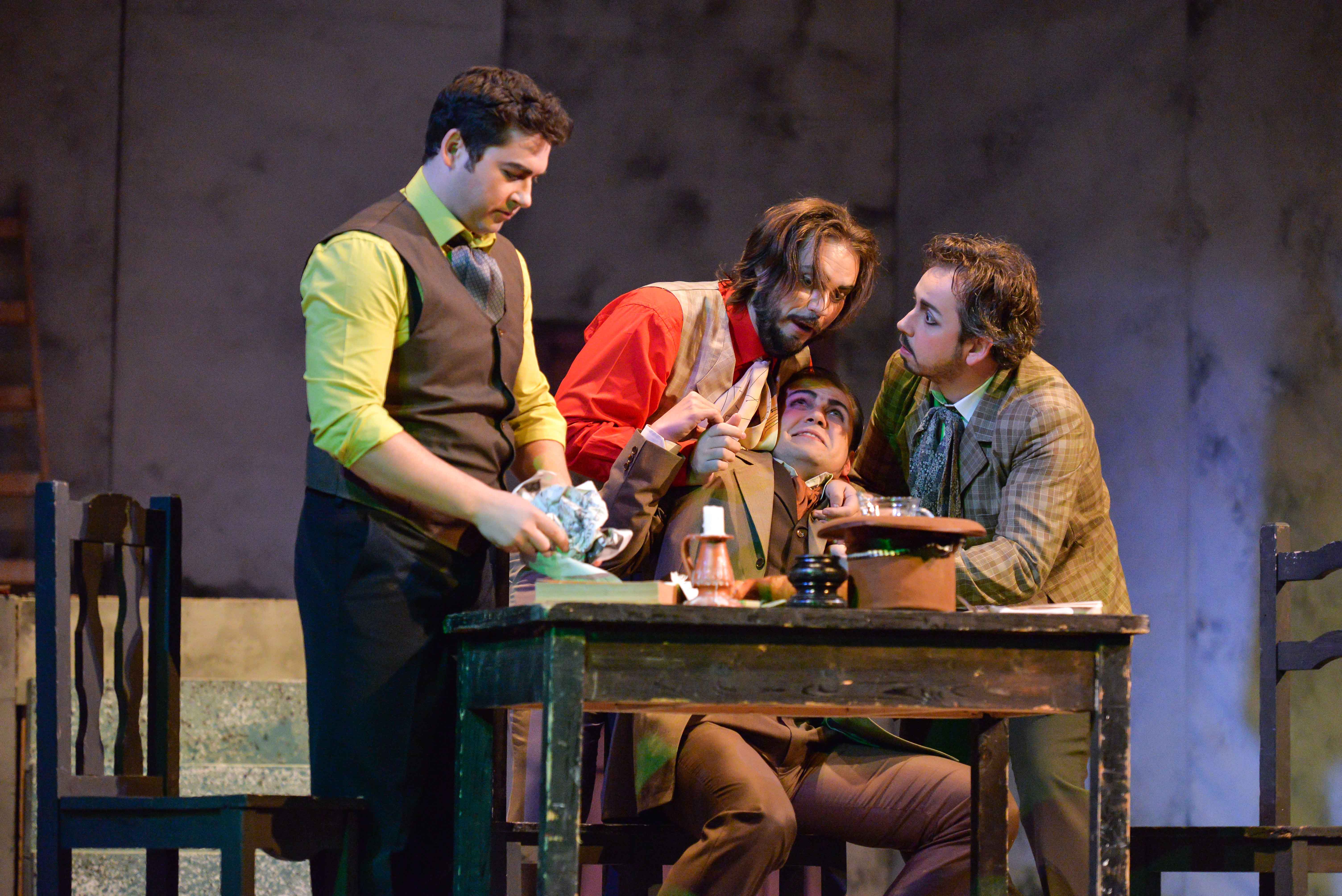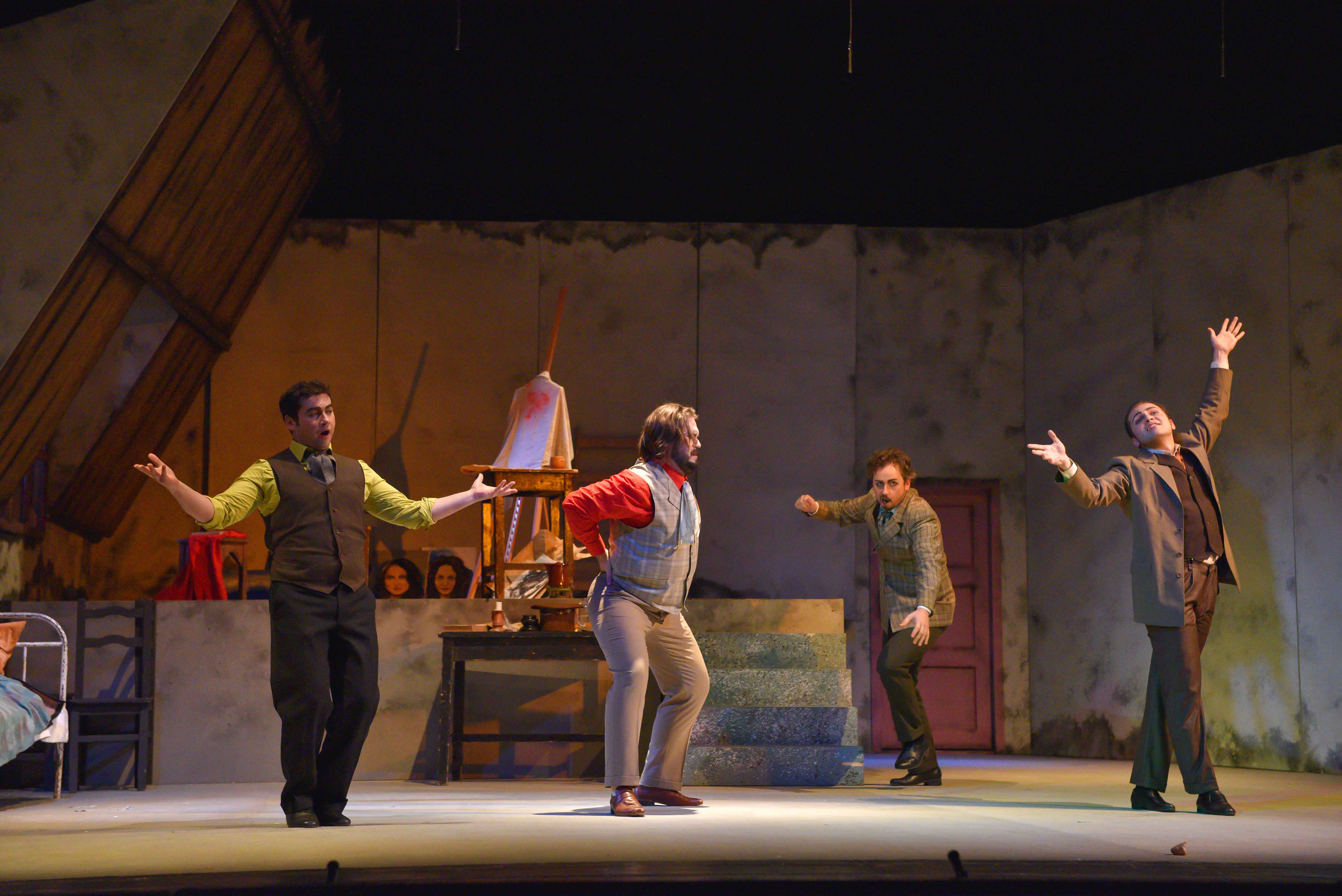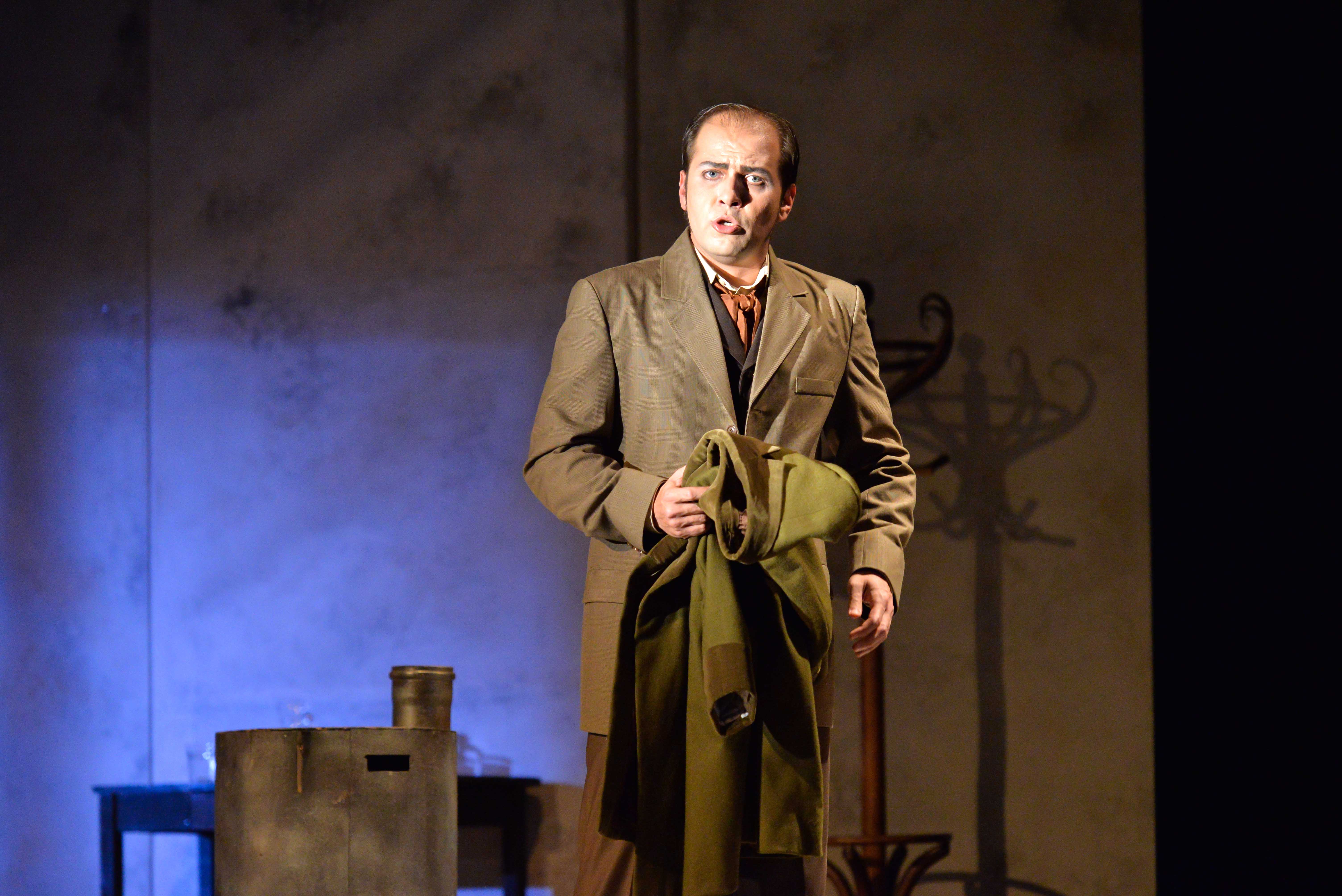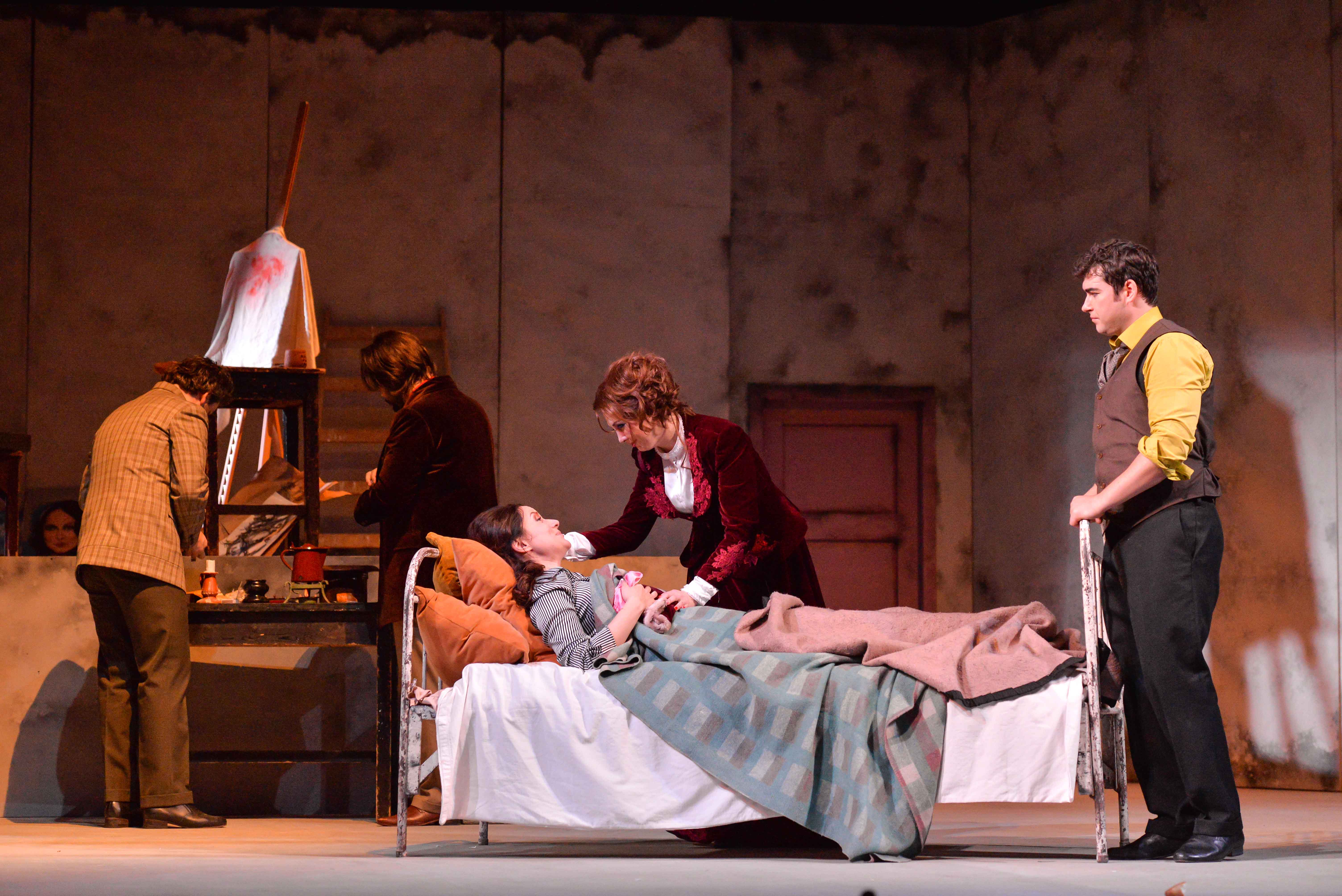
Main Hall
distribution
Artistic direction: Ina Hudea (guest)
Scenography: Mihai Vălu (guest)
Lighting Design: Mădălina Mânzat (guest)
Mimì: Lorena Puican
Rodolfo, poet: Sorin Lupu
Marcello, a painter: Zoltan Nagy (guest)
Musetta: Lucia Bulucz
Schaunard, a musician: Cristian Hodrea
Colline, a philosopher: Corneliu Huțanu
Benoit, the house landlord: Simonfi Sandor
Alcindoro: Simonfi Sandor
Parpignol: Eusebiu Huțan
The Sergeant: Alexandru Potopea
A customs officer: Tudor Demeter
The Orchestra and the Chorus of the Romanian National Opera in Cluj-Napoca
"Junior-Vip" Chorus of the Romanian National Opera in Cluj-Napoca and of the "Sigismund Toduță" Music College in Cluj-Napoca - Conductor: Anca Mona Mariaș
Chorus master: Emil Maxim
Chorus conductor: Corneliu Felecan
Assistance artistic direction: Alina Simona Nistor
Stage and backstage direction: Cristina Albu
description
show category: opera
Opera in four acts (libretto by Giuseppe Giacosa & Luigi Illica, based on Henry Murger’s Scènes de la vie de bohème)
Recommended Age: 7+
The combination of love, tenderness and sacrifice spirit found between the young Mimì and Rodolfo, or, on the other hand, of love, jealousy and extravagance that keep Musetta and Marcello together, but also the comical situations centered around Benoit – the owner of the garret where the four artists live –, or around Alcindoro – the funny, but rich, old man who accompanies Musetta – are all revealed by charming sonorities, expressive melodies and perfectly-adapted dynamics. The tragic death of the heroine is simply emphasising the verist essence of the opera. In spite of the misery they face in everyday’s life, these four friends – Marcello the painter, Rodolfo the poet, Schaunard the musician and Colline the philosopher – stick together until the end!
It’s all about Puccini’s La bohème, inspired by Henry Murger’s La vie de bohème novel, which renders a chapter of the four artists’ ,,terrible and jolly life”, and relies on autobiographical facts.
Albeit at its premiere, held on February 1st 1896 under Arturo Toscanini’s baton on La Fenice Theater’s stage in Venice, the music critic Carlo Bersezio argued that, most probably, the interest for Puccini’s La bohème will not last much longer, the charming opera will conquer the entire italian peninsula, but also Buenos Aires, Alexandria, Lisbon, Moscow and London (at Royal Opera House), achieving a worldwide success.
The performance has three breaks and ends around 9.30 p.m.
photo gallery
NICU CHERCIU

